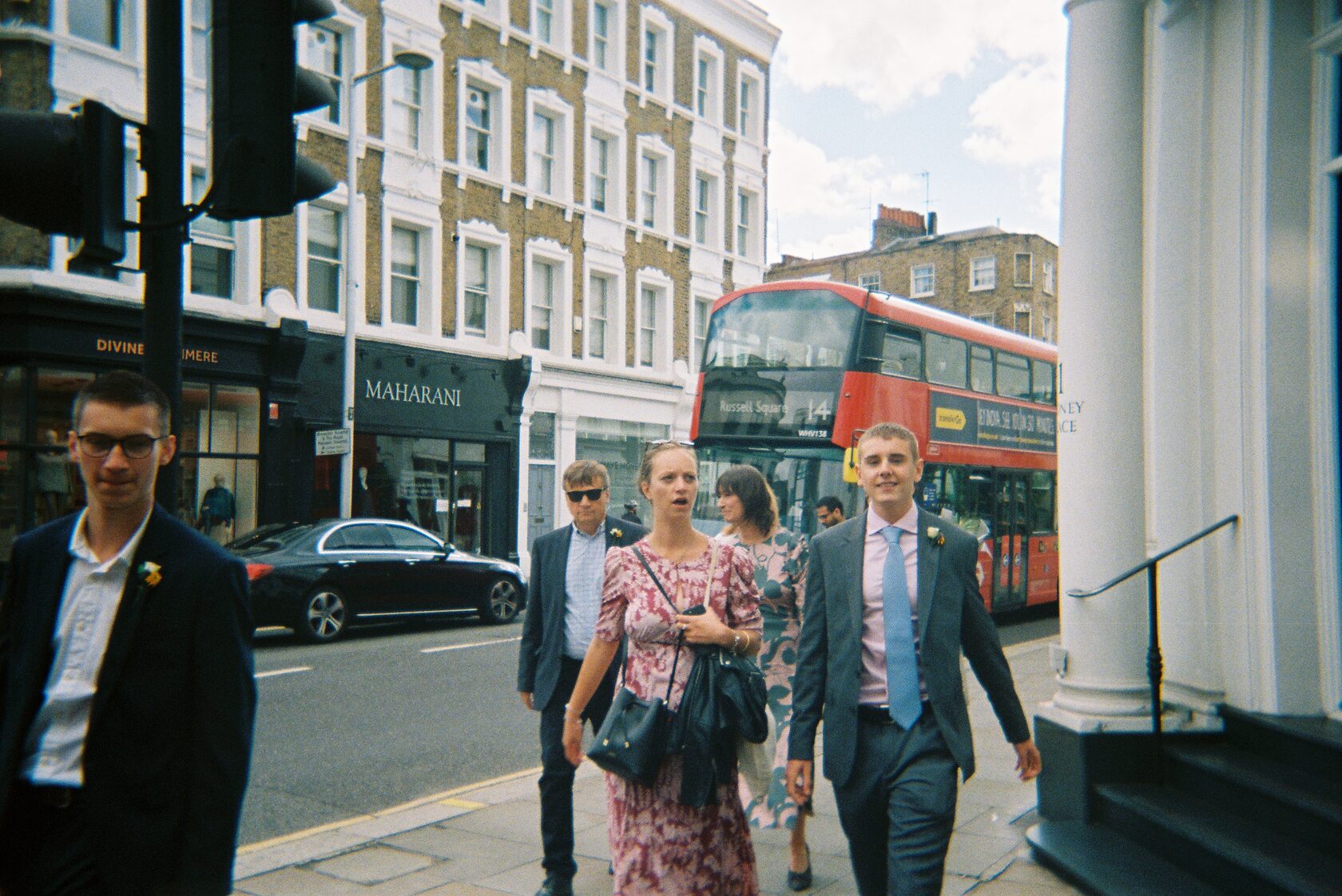The educational propaganda portrays the UK boarding school culture as the Royal Family extended: 18th century cloisters, obligatory Sunday Holy Communion, penguin suits waddling to class and, of course, “God save the King!”
The majority of UK boarding colleges were founded on Christian principles, their architecture - an authentic ode to the time Britain was Great; even 21st century facilities are dusted and rusted on purpose. However, it seems as though their reputation today has become more of an ode to money; their rich history has turned into a conglomerate of the rich - a struggling battle of old money vs the new. So let’s break down whether the boarding school community is not as far removed from the general public, or whether it really is something straight out of Gossip Girl.
In and out of school grounds
It is not fiction that values at the heart of most British private schools are rooted in the country’s traditions - manners, gender segregation, and faith have still not shifted since the time they were built. This orientation does remove boarding schools from the woke-ning general public and does attract the more conservative type. Rarely would you meet Labours in class, but more and more often would you meet a foreigner who just couldn't care less.
Of course the dedication to traditions is the main factor that secludes the private school community from the general public. I’m joking, it is obviously the money. Pair excessive parents’ wealth with teenage children and you do not get a good recipe for compassion. Private school children really do have access to the clubs, house-parties and functions that others would not end up in, whether that is for the better or for the worse. No joke, but I was once at a party where a mother rented out a strip-club for the 16th birthday of her son - I had my fake ID taken away there by a bouncer. Probably because mine cost £40 and the others’ were more like £ thousands.
The hung-over chuckles about such weekend extravaganzas is the pride of many private-school children whilst they say their prayers at the Monday morning chapel service. However, outside of school grounds, this is not something they brag about to their neighbours. Casually dropping the name of your private college to a crush is cool, if they also study at one. I haven’t broken the stereotype for you yet, have I? Unfortunately, I do not have a surprising twist for you, but I may have a glimmer of hope.
Of course the dedication to traditions is the main factor that secludes the private school community from the general public. I’m joking, it is obviously the money. Pair excessive parents’ wealth with teenage children and you do not get a good recipe for compassion. Private school children really do have access to the clubs, house-parties and functions that others would not end up in, whether that is for the better or for the worse. No joke, but I was once at a party where a mother rented out a strip-club for the 16th birthday of her son - I had my fake ID taken away there by a bouncer. Probably because mine cost £40 and the others’ were more like £ thousands.
The hung-over chuckles about such weekend extravaganzas is the pride of many private-school children whilst they say their prayers at the Monday morning chapel service. However, outside of school grounds, this is not something they brag about to their neighbours. Casually dropping the name of your private college to a crush is cool, if they also study at one. I haven’t broken the stereotype for you yet, have I? Unfortunately, I do not have a surprising twist for you, but I may have a glimmer of hope.
Just a note before that
You are probably wondering why I am separating myself from “them,” when I have also been at those same schools, have attended those same immoral parties and shared the same hangovers in chapel. I did not have a scholarship, my parents paid all the fees. Hopefully, Piers Morgan reads this bit before he calls me out. In retrospect, I am reflecting on this as a less hormonally swinging adult, and it does sound strange even to me. Although my parents would spend their last dime on my tuition, this is the path I saw to fit in. This does not sound like I have been a good son, but do not get me wrong, I am not ashamed, and neither should my peers be. I am a part of ‘them’ and I am reflecting on myself in third person.
“He is removing himself from ‘them’ because he does not want the scrutiny!” - fictionally shouts Piers. No, I am that foreigner that does not care. For the critics, please ask yourself the questions: Have your children never been rude and rebellious? Have they not been at a party, with the friends that you think are a bad influence on them? Have they not been quite lustful and avoided confession boxes?
No? I am sorry to break the news to you.
“He is removing himself from ‘them’ because he does not want the scrutiny!” - fictionally shouts Piers. No, I am that foreigner that does not care. For the critics, please ask yourself the questions: Have your children never been rude and rebellious? Have they not been at a party, with the friends that you think are a bad influence on them? Have they not been quite lustful and avoided confession boxes?
No? I am sorry to break the news to you.

Now for the glimmer of hope
We all make the same mistakes when we are teenagers. The difference between private school and state school is really the price children pay for their mistakes; and that does not have much to do with the school or the quality of education. We have had numerous lectures at school about the precautions of taking risks, punishments and heart-to-heart conversations with tutors and housemasters/mistresses. Well intended, but not effective. The staff really do not have prejudice for the well off families, and do not care much about “contributions” to the new library. There are numerous scholarship opportunities that help the lesser earning families and their children are welcomed members of the school community, humble and far from spoiled.
Although the humble scholars do not create the “trends” (simply because of their numbers), there is a silent revolution happening in the stigma of private schools; and these are those careless foreigners.
Let me explain. A child from London grows up in a neighbourhood making friends on his street, with the children of family friends, or with friends of friends. Life juggles people around and these friends end up relocating to all parts of the country. Some attend schools up north, some stay local. The Londoner visits his childhood friends here and there. They are shaped by the community they grew up in - the news they watch on TV, the inter-school sports fixtures and the places they hang out.
The foreigner, on the other hand, knows nothing about the UK when they arrive and really only has a group chat to stay in touch with their friends from home; and that is why they are eager to make friends - make friends with everyone and everywhere. They are not aware of the stereotypes, of the public opinion, of the traditions, or of the customs. They just do not care - their mission is to receive the education and to settle in. Especially at a young age.
The diversity foreigners bring to the community is what is breaking outdated traditions: more and more schools are becoming co-educational and building facilities to accommodate a diversity of faith practices. To an extent, the money that foreigners are paying is also what changes attitudes of the directive board to the school values. Their open-heartedness is what is warming the private-school children to other lifestyles and what opens the conversation between the general public and the private school children. Isn’t this what I am doing right now?
The foreigner, on the other hand, knows nothing about the UK when they arrive and really only has a group chat to stay in touch with their friends from home; and that is why they are eager to make friends - make friends with everyone and everywhere. They are not aware of the stereotypes, of the public opinion, of the traditions, or of the customs. They just do not care - their mission is to receive the education and to settle in. Especially at a young age.
The diversity foreigners bring to the community is what is breaking outdated traditions: more and more schools are becoming co-educational and building facilities to accommodate a diversity of faith practices. To an extent, the money that foreigners are paying is also what changes attitudes of the directive board to the school values. Their open-heartedness is what is warming the private-school children to other lifestyles and what opens the conversation between the general public and the private school children. Isn’t this what I am doing right now?
Children are not adults, they are social and they want to play. Although they try to measure their dignities, it is really the dignities of their parents that are on the table.
Everybody makes mistakes and everybody learns from them. The stereotypes in Gossip Girl and Riot Club are only what drives the disconnection in understanding between the general public and the private-school community. These media reflect on the conflict between the “filthy rich” and the middle class, it is nothing that kids should be blamed for.
So if you are a foreigner, and your choice of education is a boarding school in the UK, believe me, you will not be out of place. In fact, you may be reshaping it.








